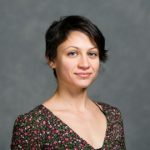York’s Faculty of Science draws “rising stars” for inaugural York Science Fellowships
TORONTO, Monday, March 13, 2017 – The Faculty of Science at York University has recruited six impressive emerging researchers from around the world as the inaugural recipients of York Science Fellowships. These premier postdoctoral fellowships offer talented, early-career scientists the opportunity to pursue their research in collaboration with outstanding scientists in the Faculty of Science. They were made possible thanks to a generous grant from Jim and Marilyn Simons.
“We have the expertise and infrastructure to provide terrific research opportunities for exceptional postdoctoral fellows,” said Ray Jayawardhana, dean of the Faculty of Science. “By providing promising young scientists with the chance to work with leading investigators at York, we are able to invest in their success, and enhance the culture of breakthrough research.”
The Fellowships are each valued at $72,000 per year, including contributions from the Faculty of Science and host faculty members, and they are granted for a period of two years.
The first six recipients are:

Amy Botta
Amy Botta
Amy Botta is currently completing her PhD in biology at the University of British Columbia. As a York Science Fellow, she will work in Professor Gary Sweeney’s lab in the Department of Biology to investigate how iron excess leads to heart failure. Having high levels of iron in the body increases a person’s risk for a range of diseases, including liver disease, cardiovascular disease, and diabetes. Botta will study how iron overload affects cellular mechanisms and leads to cardiac dysfunction. New knowledge from this research could pave the way for improved therapeutic strategies. During her PhD Botta has previously held a Doctoral Research Award from the Canadian Institutes of Health Research and a P.E.O. Scholar Award and has already published eight research papers.

Bruno de Mendonça Braga
Bruno de Mendonça Braga
Bruno de Mendonça Braga is currently completing a second PhD in mathematics at the University of Illinois at Chicago (his first PhD was completed at Kent State University). As a York Science Fellow working with Professor Ilijas Farah in the Department of Mathematics & Statistics, his research will focus on functional analysis. In particular, the main focus of his research will be Banach space theory, i.e., the theory of infinite-dimensional vector spaces. He will be exploring the nonlinear geometry of Banach spaces and the descriptive set theory of separable Banach spaces. He has published six research papers.

Zehra Cemile Marsan
Zehra Cemile Marsan
Zehra Cemile Marsan is currently completing her PhD in physics and astronomy at Tufts University. Her research is focused on understanding the properties and evolution of galaxies across cosmic time and has resulted in five publications. As a York Science Fellow working under the supervision of Professor Adam Muzzin in the Department of Physics & Astronomy, Marsan will use the deepest and largest astronomical surveys to study galaxies in the early universe. She will apply her expertise in spectroscopy and multi-wavelength observations to fully characterize their stellar population, dust and gas content. This work will guide efforts to explain the assembly of today's most massive galaxies.

Alba María Jorge Palacios
Alba María Jorge Palacios
Alba María Jorge Palacios is currently completing her PhD in theoretical chemistry at Universidad Autónoma de Madrid. Her York Science Fellowship will focus on understanding how hadron therapy causes cell damage in tumours. Hadron therapy uses targeted beams of ions that cause biomolecules (including water) to lose electrons, which then attack the DNA of tumor cells. Water molecules can also fragment and induce further cell damage. Under the supervision of Professor Tom Kirchner in the Department of Physics and Astronomy, Jorge Palacios will investigate how ions collide with water, the behaviour of electrons, and the mechanism of water fragmentation for different impact ion beams. Jorge Palacios’s research has resulted in six publications to date.

Wen Xu
Wen Xu
Wen Xu completed his PhD at Jilin University (China) in physical electronics and is currently a JSPS Postdoctoral Fellow at the Tokyo Institute of Technology. Xu’s research as a York Science Fellow will focus on developing highly sensitive methods of detecting microRNAs. MicroRNAs are small non-coding RNA molecules that regulate mRNA expression and play important roles in many biological systems and processes. They also show promise as clinical biomarkers for diseases like preeclampsia and cancer and could potentially be used for early diagnosis. Their small size, however, makes them difficult to tag or detect. Xu will work with Professor Jennifer Chen in the Department of Chemistry to explore the use of specially modified metal nanoparticles as a tool for microRNA analysis. He has published more than 30 papers in highly ranked journals and he has received two Outstanding Doctoral Thesis Awards.

Yue Zhao
Yue Zhao
Yue Zhao is currently completing his PhD in applied mathematics at Purdue University, where he holds a Bilsland Fellowship. His research is focused on developing and analyzing math models and computations to understand how light, sound, electromagnetic and elastic waves travel and scatter through materials, and it has already led to four publications. This work has important applications in engineering and mathematics, such as for radar and sonar, geophysical exploration, investigating earthquakes, and biomedical imaging. Zhao will hold his Fellowship with Professor Peter Gibson in the Department of Mathematics & Statistics.
- 30 -
York University is known for championing new ways of thinking that drive teaching and research excellence. Our students receive the education they need to create big ideas that make an impact on the world. Meaningful and sometimes unexpected careers result from cross-discipline programming, innovative course design and diverse experiential learning opportunities. York students and graduates push limits, achieve goals and find solutions to the world’s most pressing social challenges, empowered by a strong community that opens minds. York U is an internationally recognized research university – our 11 faculties and 26 research centres have partnerships with 200+ leading universities worldwide. Located in Toronto, York is the third largest university in Canada, with a strong community of 53,000 students, 7,000 faculty and administrative staff, and more than 295,000 alumni.York U's fully bilingual Glendon campus is home to Southern Ontario's Centre of Excellence for French Language and Bilingual Postsecondary Education.
Media Contact:
Sandra McLean, York University Media Relations, 416-736-2100 ext. 22097, sandramc@yorku.ca






